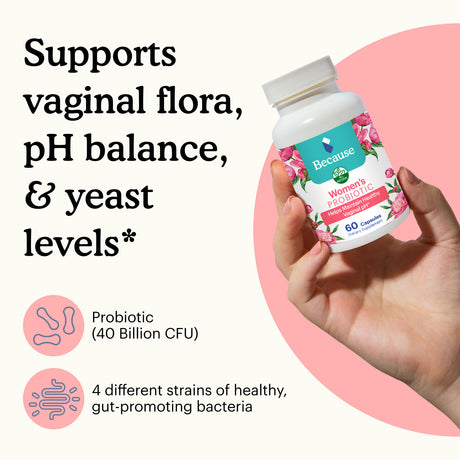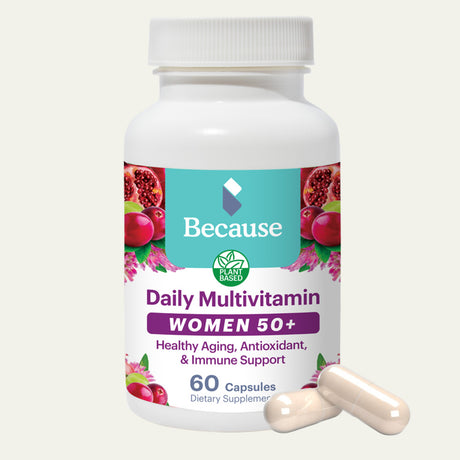Urinary tract infections (UTIs) are common among older men and women. They’re the most commonly diagnosed type of infection in seniors. Many people suffer from recurrent UTIs, but if you’re one of them, cranberry may help reduce the frequency of infections.
What Is Cranberry?

Cranberry is an evergreen shrub native to the United States and Europe. It produces dark red berries with a tart flavor. In addition to providing a food source, cranberries have been popular natural remedies for centuries. Native Americans used cranberries as medicine for bladder, liver, and stomach issues and dressing wounds. Today, people primarily use cranberry as a home remedy for urinary tract infections.
What Causes UTIs and Who Is at Risk of Them?
Urinary tract infections are bacterial infections in the urinary tract. Most often, infections occur in the lower urinary tract, consisting of the bladder (the organ that stores urine) and the urethra (the opening urine passes through when you urinate).
If left untreated, a lower urinary tract infection worsens and spreads through tubes called ureters into the kidneys (organs that produce urine). Kidney infections pose serious health risks, including permanent kidney damage and life-threatening blood infections.
UTI Symptoms
UTIs cause several unpleasant symptoms, including:
- Burning sensation when urinating
- Strong, persistent urge to urinate
- Increased urinary frequency
- Cloudy or red, pink, or soda-colored urine
- Strong-smelling urine
- Pelvic pain and pressure
If you experience any of the above symptoms, your doctor can test your urine to determine if you have a UTI or a condition that causes similar symptoms.
UTI Causes
UTIs happen when bacteria enter the urinary tract, and your immune system cannot fight them off. As a result, the bacteria reproduce, and the infection worsens. Your body produces an inflammatory response to help eliminate the bacteria, which leads to unpleasant UTI symptoms.
Although many types of bacteria can cause UTIs, Escherichia coli (E. coli) is responsible for most infections. This bacteria is naturally present in stool and gets introduced into the urinary tract from:
- Wiping from back to front instead of from front to back
- Sexual intercourse
- Lack of hygiene
- Not following proper incontinence skin care when changing incontinence pads and underwear
Irritation in your private area caused by ill-fitting underwear, harsh soaps and perfumes, and other things can raise the risk of a UTI. When irritation occurs, swelling around the urethra can make bacteria more likely to get caught in the lower urinary tract.
UTI Risk Factors
While anyone can develop a UTI, some people are more at risk, including:
- Women: Women have a shorter urethra than men, so bacteria have a shorter distance to travel to enter the bladder and cause infection.
- Sexually active people: Sexual activity can introduce bacteria to the urinary tract. Urinating and washing your private area after sex may reduce the UTI risk.
- Postmenopausal women: Hormonal changes during menopause can alter the urinary tract, making it more vulnerable to infection.
- Individuals with compromised immune systems: Diabetes and other conditions interfering with immune system activity may be more likely to develop infections. Medications that suppress the immune system can also increase your risk. There is also some research suggesting that anxiety can interfere with your immune system as well.
- Men and women with urinary tract problems or blockages: Any condition or injury that makes it difficult for urine to flow out of the body can increase UTI risk. Urine flushes out the bladder and urethra. Kidney stones, an enlarged prostate, or a narrow urethra can make it more difficult for urine to do its job, raising the risk of infection.
How Does Cranberry Help UTI?
Clinical studies devoted to using cranberry for UTIs continue to this day. In 2020, the U.S. Food and Drug Administration (FDA) announced some cranberry products could list on their labels that there was limited evidence to suggest they may reduce the risk of frequent UTIs in women (based on the finding of previous research studies). Still, further investigation is necessary to fully understand cranberry's benefits for UTIs.
Let’s look at what we know about cranberries and UTIs so far.
Cranberries May Inhibit Bacterial Adhesion to the Urinary Tract
For E. coli or another type of bacteria to cause an infection, it must first attach to the lining of the urinary tract. Compounds in cranberries called proanthocyanidins (PCAs) can interfere with bacteria’s ability to stick to the bladder wall and the lining of the urethra. If bacteria can’t adhere fully, it’s more likely to become flushed out during urination.
Cranberries May Reduce Bacterial Growth and Biofilm Formation
Attaching to the bladder wall or urethra lining isn’t enough for bacteria to cause an infection. Once it sticks, it must then reproduce and form a thin layer called a biofilm. PACs in cranberries may disrupt this process, making a bacterial infection less likely.
Cranberries Offer Beneficial Immune Support Nutrients
In addition to PACs, cranberries provide many other compounds that benefit the human body. They’re a good source of antioxidants (substances that break down free radicals that damage healthy cells). Cranberries are also rich in vitamin C (an essential vitamin that acts as an antioxidant).
Your immune system needs vitamin C to function correctly, and antioxidants may help regulate the body’s immune response. As a result, the nutrients in cranberries may support immune system function. A healthy immune system may better fight off bacteria that cause UTIs.
Does Cranberry Juice Prevent UTI?

Cranberry juice may provide small benefits for UTI prevention, but the type of juice matters. Cranberry juice cocktail products usually blend cranberry and other juices, so they don’t offer large amounts of cranberry.
A 100% cranberry juice product may be a better source of cranberries. Drinking unsweetened cranberry juice to reduce the risk of UTIs may be worth trying, but manage your expectations. Studies into the effectiveness of cranberry juice for UTI prevention have yielded mixed results.
How to Use Cranberry for UTI Prevention
Experts typically recommend cranberry supplements over cranberry juice for people who want to lower the risk of UTI recurrence. Supplements include cranberry tablets and capsules containing powdered extract from berries.
Before taking any new supplement, double-check with your healthcare provider that the product is right for you. For best results, follow the directions for use printed on the supplement bottle unless your medical provider gives you other instructions.
Can Cranberry Treat an Existing UTI?
Several meta-analyses and systematic reviews of scientific research have concluded that cranberry is not an effective treatment for UTIs. Prescription antibiotics are still the best treatment option if you have UTI symptoms. Using cranberry juice or supplements is unlikely to cure an infection, and delaying antibiotics can increase the risk of developing a more severe kidney infection.
Doctors usually advise patients that it’s okay to drink cranberry juice or take a cranberry supplement with antibiotics, but how much cranberry helps with antibiotics has yet to be investigated.
The Best Cranberry Supplement for Preventing UTIs

Many cranberry products are available on the market, but choosing one doesn’t have to be overwhelming. To get the best cranberry supplement for your needs, consider the following.
Purpose
Most cranberry pills are general-purpose, providing only a certain number of milligrams of cranberry extract. A few others are formulated specifically as bladder supplements. These cranberry tablets and capsules usually contain additional ingredients that support urinary tract health.
For example, UTI-defense cranberry capsules may also feature probiotics (good bacteria that maintain balance in the urinary tract to further reduce the risk of UTIs). Supplements formulated specifically for UTI prevention may also deliver nutrients that benefit the immune system (such as vitamin C).
Standardization
The dose of cranberry extract in a supplement isn’t the only thing you need to compare. How many compounds called proanthocyanidins (PACs) a supplement contains also matters. After all, you want to ensure you get the benefits of the active compounds found in cranberries. With standardized supplements, manufacturers optimize cranberry extract to contain a minimum amount of PACs.
Clinically Researched
The FDA doesn’t approve dietary supplements that are on the market. As a result, supplement manufacturers don’t have to put their products through clinical trials to prove they deliver benefits and are safe for use (although some still hire researchers to study and test the key ingredients in their supplements). A clinically proven active ingredient can separate a cranberry supplement from others on the market so you can choose it confidently.
Quality Standards
Although the FDA doesn’t approve supplements, it does allow supplement manufacturers to register their manufacturing facilities. When they register, manufacturers submit to quality and safety inspections. Choosing a supplement manufactured in the USA at an FDA-registered facility will ensure you get a high-quality product.
Additionally, look for supplements from GMP-certified labs and facilities. This certification means that a third-party agency has evaluated the manufacturing process and found that it complies with the Good Manufacturing Practice guidelines recommended by the FDA.
Ease of Use
A supplement can’t deliver benefits if you don’t take it regularly, as the manufacturer recommends. Choose a supplement you only need to take once daily so you're less likely to forget. Supplements that don’t require refrigeration will be more accessible for you to take on the go.
Dietary Concerns
If you follow a special diet or have dietary restrictions, choose a supplement that fits your eating plan. For example, you may prefer vegan or non-GMO cranberry pills or need a gluten-free product.
Are you looking for a high-quality bladder health supplement? Because UTI Defense Daily Supplement is an excellent choice. Just two capsules per day treat you to the benefits of 500 mg of clinically researched cranberry fruit and seed powder, plus vitamin C and a proprietary probiotic blend. We manufacture our supplement in the U.S.A. at a GMP-certified lab, and our cranberry capsules are non-GMO, vegan, and gluten-free.
Learn more about Because UTI Defense Daily Supplement and order a bottle today.
Sources:
Cleveland Clinic. (2020). The Truth About UTIs in Older Adults. https://consultqd.clevelandclinic.org/the-truth-about-utis-in-older-adults/
National Center for Complementary and Integrative Health. (2016). Cranberry. https://www.nccih.nih.gov/health/cranberry
U.S. Food and Drug Administration. (2020). FDA Announces Qualified Health Claim for Certain Cranberry Products and Urinary Tract Infections. https://www.fda.gov/food/cfsan-constituent-updates/fda-announces-qualified-health-claim-certain-cranberry-products-and-urinary-tract-infections
National Center for Biotechnology Information. (2009). Urinary Tract Infection (UTI). In StatPearls. https://www.ncbi.nlm.nih.gov/books/NBK92762/














